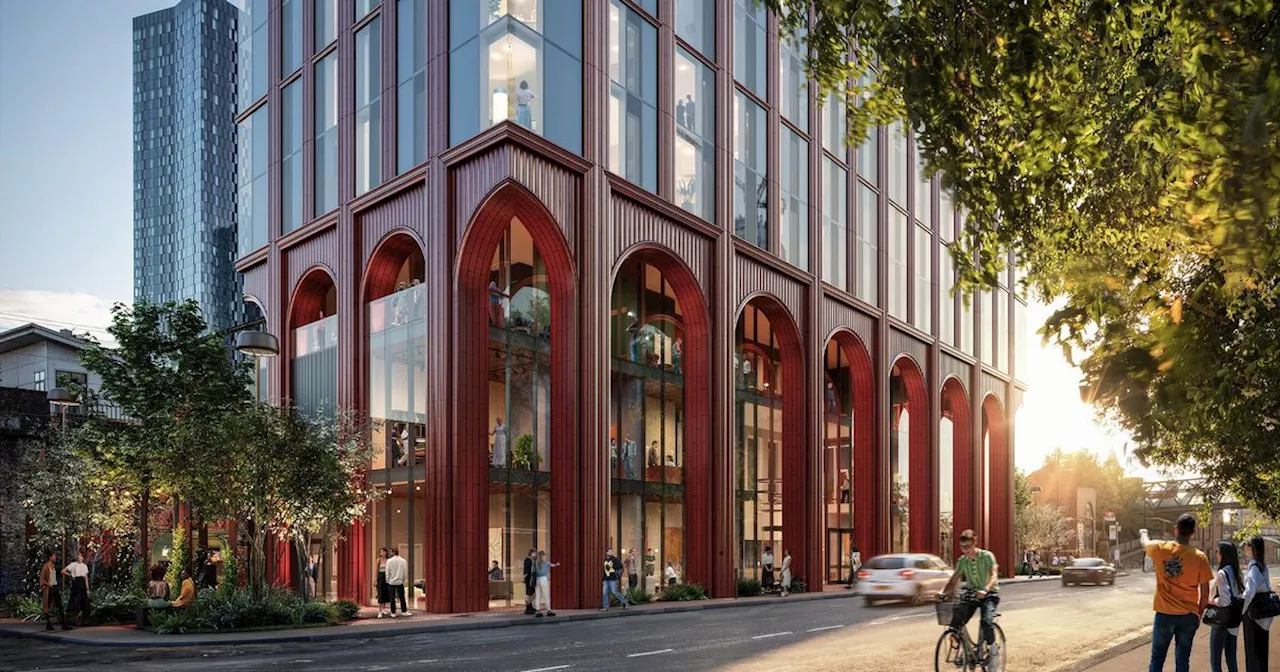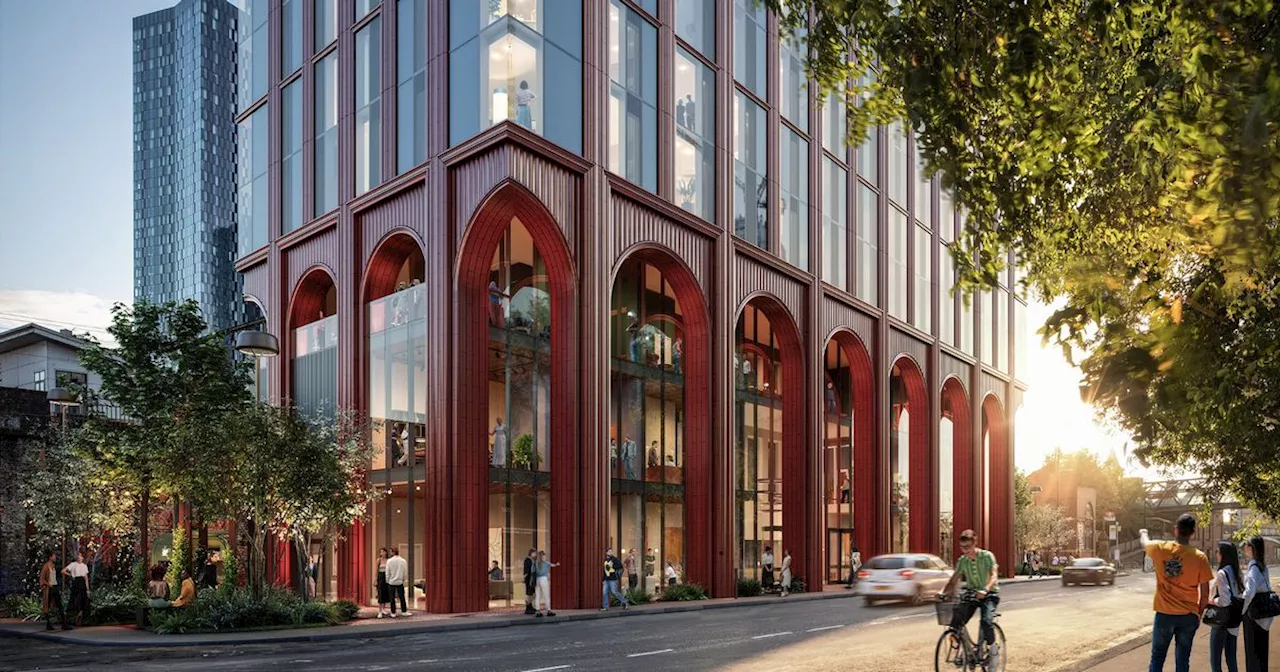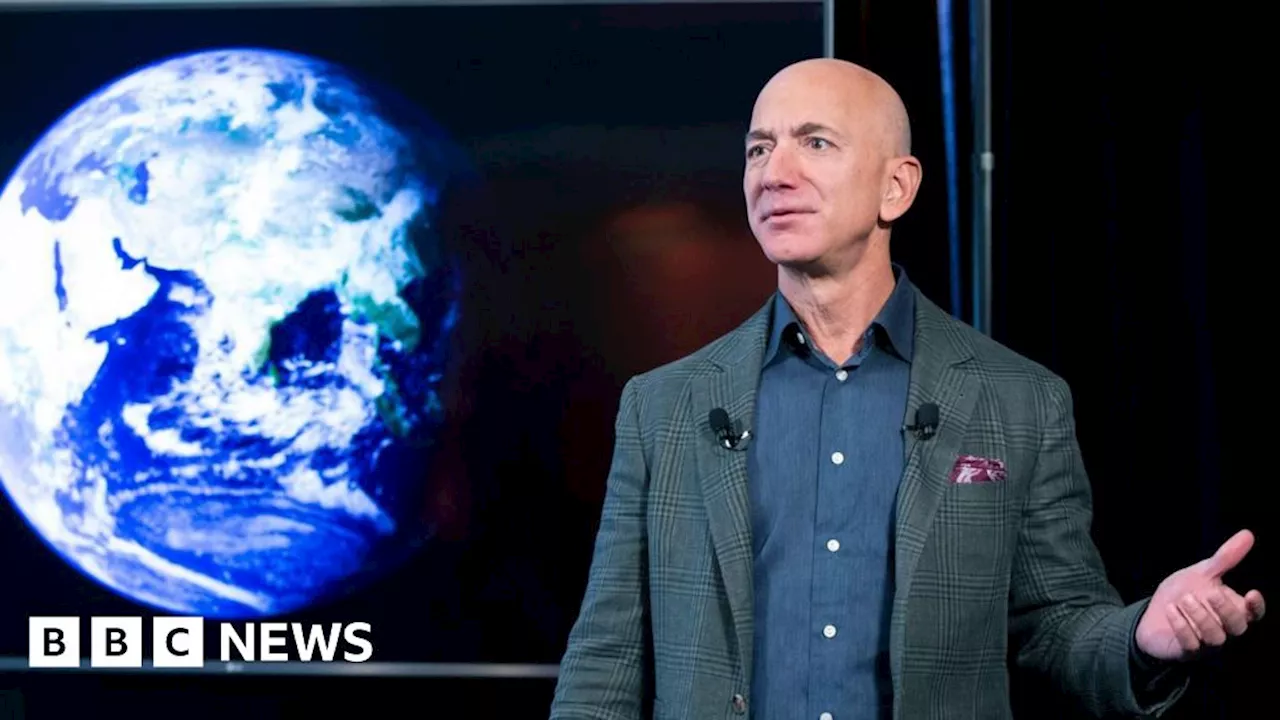A pioneering project in Manchester, funded by a prize established by Amazon founder Jeff Bezos, is focusing on restoring sphagnum moss, a key player in combating climate change. Researchers believe this 'super moss' can effectively capture carbon and reduce methane emissions, but its decline due to human activities necessitates a restoration effort.
Manchester researchers have received funding through an award created by Jeff Bezos, Amazon founder. Jeff Bezos is backing a pioneering Manchester project involving a 'super species' of moss that researchers say could be the answer in the fight against climate change . Sphagnum moss, which occurs in peatlands across the UK, is 'key' to stemming the impact of global warming, according to Dr Jonathan Ritson, from the University of Manchester.
The moss captures carbon and reduces methane emissions but human activities have led to its decline, including across the nearby Peak District. Dr Ritson's team is aiming to reverse the decline and funding from California's Silicon Valley could now help make it happen. The team has been awarded the Bezos Earth Fund Greenhouse Gas Removal Ideation Prize, established by Bezos. Dr Jonathan Ritson and his team are trying to find which strains of sphagnum are the best for capturing methane. The boost will help Dr Ritson and his team research the best ways of restoring sphagnum moss across not just the UK but wider northern Europe. 'Manchester has been building up its reputation as a global hub for peatland research and it's really great to have that recognised,' the doctor said. There are over 30 sphagnum species ranging in colour from red and pink to orange and green. The plants are very small but grow closely together forming spongy carpets, sometimes growing to form large mounds. They play a role in the creation of peat bogs and, by storing water in their spongy forms, they prevent the decay of dead plant material and eventually form peat. Central to this is sphagnum moss, which also supports bacteria that consumes methane - a potent greenhouse gas. The moss grows across many peatlands in the UK but some landscapes have been damaged. Human activities have led to the decline of sphagnum in many peatlands, with damage to the Peak District Moors playing out ever since the dawn of the industrial revolution. Dr Ritson continued: 'We are basically downwind of Manchester, the heart of the industrial revolution. 'There was so much acid rain from all the coal being burnt that essentially the sphagnum and a lot of other vegetation just died off completely.' He added that 'wet, healthy' bogs are good for carbon sequestration - the process of chemically isolating carbon - but wet bogs also release a lot of methane. The team's project is aiming to use a variation of sphagnum mosses as a natural filter to trap the methane and stop it being released. By identifying and cultivating 'super' strains of sphagnum moss, the team hope they can create a natural and sustainable way to capture the methane and gradually restore the landscape
Climate Change Sphagnum Moss Peatlands Methane Bezos Earth Fund Carbon Sequestration Restoration
United Kingdom Latest News, United Kingdom Headlines
Similar News:You can also read news stories similar to this one that we have collected from other news sources.
 Mining start-up backed by Bill Gates and Jeff Bezos valued at $2.96bnKoBold Metals aims to lead race for critical minerals needed for energy transition
Mining start-up backed by Bill Gates and Jeff Bezos valued at $2.96bnKoBold Metals aims to lead race for critical minerals needed for energy transition
Read more »
 Manchester United Stadium Plans: Ratcliffe Considers Mega-Stadium and Bezos, Musk as InvestorsReports suggest Manchester United owner Sir Jim Ratcliffe has explored the possibility of building a new, massive stadium, potentially attracting investors like Elon Musk and Jeff Bezos. While a move to a new site is being considered, renovations to the existing Old Trafford are also on the table.
Manchester United Stadium Plans: Ratcliffe Considers Mega-Stadium and Bezos, Musk as InvestorsReports suggest Manchester United owner Sir Jim Ratcliffe has explored the possibility of building a new, massive stadium, potentially attracting investors like Elon Musk and Jeff Bezos. While a move to a new site is being considered, renovations to the existing Old Trafford are also on the table.
Read more »
 Sheikh Jassim's 'Project Ruby' to Remove Manchester United Debt and Build New StadiumThe Mail reports that the Qatari bid for Manchester United, led by Sheikh Jassim, would have seen the club's debt removed and a new stadium built within days of the takeover.
Sheikh Jassim's 'Project Ruby' to Remove Manchester United Debt and Build New StadiumThe Mail reports that the Qatari bid for Manchester United, led by Sheikh Jassim, would have seen the club's debt removed and a new stadium built within days of the takeover.
Read more »
 Amorim's Identity Project at Manchester United: Wing-Backs and Transfer NeedsRuben Amorim's appointment as Manchester United manager has brought a focus on building a new identity for the team. His preferred 3-4-3 formation relies heavily on wing-backs, with Amad emerging as a key player in the right wing-back role. However, the lack of a consistent left wing-back remains a concern, making it a top priority for the January transfer window.
Amorim's Identity Project at Manchester United: Wing-Backs and Transfer NeedsRuben Amorim's appointment as Manchester United manager has brought a focus on building a new identity for the team. His preferred 3-4-3 formation relies heavily on wing-backs, with Amad emerging as a key player in the right wing-back role. However, the lack of a consistent left wing-back remains a concern, making it a top priority for the January transfer window.
Read more »
 New Skyscraper Plans Move Forward in Manchester While Neighboring Project StallA proposed 44-storey apartment building with 364 units on Whitworth Street West in Manchester has taken a step closer to reality after developers submitted planning permission applications. The project, touted as pushing the boundaries of city centre living, includes communal amenity facilities housed in street-level arches. Meanwhile, plans for a neighboring 'skinny skyscraper' known as Vision Manchester have stalled after its developer entered administration last year. The land has been sold to a new developer who intends to explore alternative proposals for the site.
New Skyscraper Plans Move Forward in Manchester While Neighboring Project StallA proposed 44-storey apartment building with 364 units on Whitworth Street West in Manchester has taken a step closer to reality after developers submitted planning permission applications. The project, touted as pushing the boundaries of city centre living, includes communal amenity facilities housed in street-level arches. Meanwhile, plans for a neighboring 'skinny skyscraper' known as Vision Manchester have stalled after its developer entered administration last year. The land has been sold to a new developer who intends to explore alternative proposals for the site.
Read more »
 44-Storey Skyscraper Plans Advance in Manchester While 'Skinny Skyscraper' Project StallsPlans for a 44-storey apartment block with 364 flats on Whitworth Street West in Manchester have been submitted for planning permission. Developers Glenbrook aim to 'push the boundaries of city centre living' with the project. Meanwhile, a neighboring 'skinny skyscraper' project called Vision Manchester has hit trouble and its developer entered administration last year. The land has been sold to a new developer who intends to explore an alternative proposal for the site.
44-Storey Skyscraper Plans Advance in Manchester While 'Skinny Skyscraper' Project StallsPlans for a 44-storey apartment block with 364 flats on Whitworth Street West in Manchester have been submitted for planning permission. Developers Glenbrook aim to 'push the boundaries of city centre living' with the project. Meanwhile, a neighboring 'skinny skyscraper' project called Vision Manchester has hit trouble and its developer entered administration last year. The land has been sold to a new developer who intends to explore an alternative proposal for the site.
Read more »
